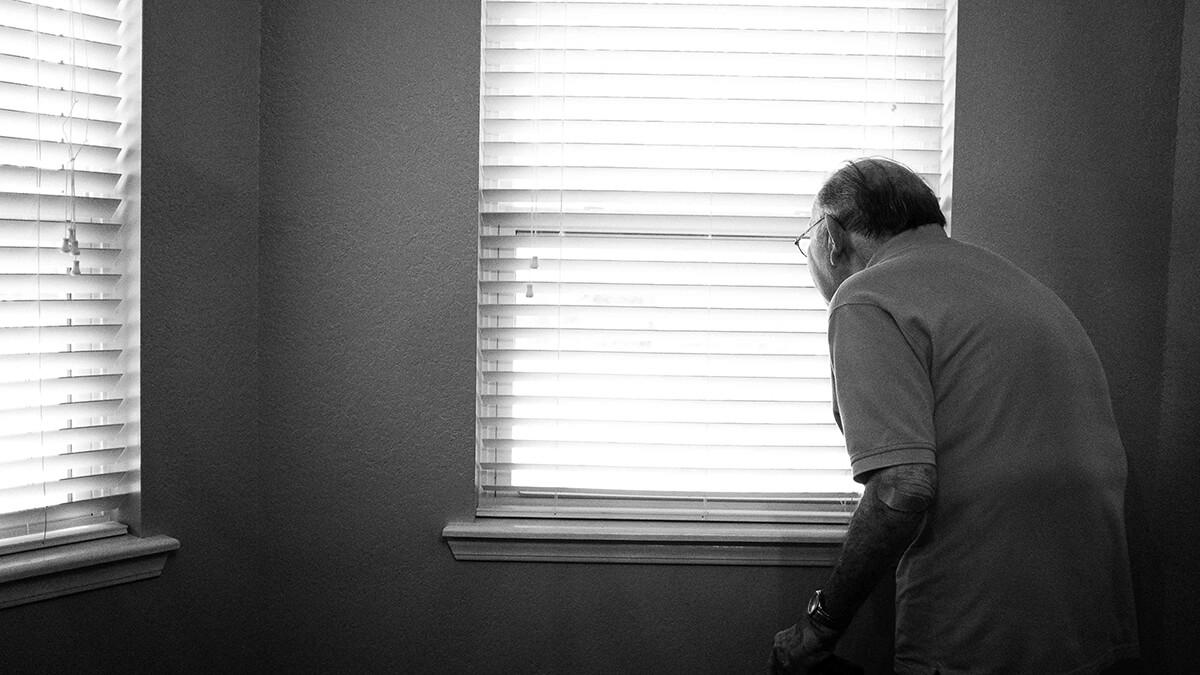Retirement is the perfect time to embrace a simpler, more manageable lifestyle. Downsizing—moving to a smaller home or fewer belongings—has become a popular choice for retirees looking to streamline their lives. It’s not just about cutting costs; it’s about creating room for the things that truly matter.
Simplifying your space can reduce maintenance, free up financial resources, and even unlock new opportunities for travel or hobbies. Whether you’re seeking a cozy condo or a lively retirement community, downsizing lets you focus on enjoying your golden years without unnecessary stress.
Ready to make your move? iBuyer.com can help you sell your home quickly and without the hassle. Explore your options today!
Compare Cash Offers from Top Home Buyers. Delivered by Your Local iBuyer Certified Specialist.
One Expert, Multiple Offers, No Obligation.
Downsize For Retirement
1. Why Consider Downsizing for Retirement?
When thinking about retirement, many people imagine a life of freedom and flexibility. Downsizing can be a game-changer, offering financial, lifestyle, and emotional benefits that make this phase even more enjoyable.
Financial Benefits
Downsizing can significantly cut your living costs. A smaller home usually means lower mortgage payments, utility bills, and property taxes. Additionally, selling your current home may provide a financial cushion, giving you extra savings for travel, hobbies, or unexpected expenses.
For retirees on a fixed income, the goal is to only keep as much house as you can comfortably afford – downsizing helps align your home’s costs with what your budget can handle in retirement.
Lifestyle Perks
A smaller space means less to clean and maintain, giving you more time to focus on what you love. Downsizing can also help you find a home better suited to your needs, such as a one-level property or a location closer to family, friends, or healthcare services.
Emotional Gains
Retirement marks the beginning of a new chapter. Downsizing can symbolize letting go of the past and embracing the opportunities ahead. Moving into a space that fits your current lifestyle can bring a sense of renewal and excitement for the future.
2. Common Challenges of Downsizing
Downsizing can be a rewarding journey, but it’s not without its hurdles. Recognizing these challenges early can help you prepare and make the process smoother.
Emotional Attachment to Your Home
Leaving a home filled with years of memories can be tough. From family gatherings to personal milestones, every corner might hold sentimental value. It’s important to honor those feelings while focusing on the opportunities your new home will bring.
Tip: Take photos of your favorite spots and items in your home to preserve the memories. This can make letting go a little easier.
Costs Associated with Moving
Downsizing can save money in the long run, but moving comes with upfront expenses. Movers, storage fees, and potential renovations on your new home can add up quickly. Planning for these costs is crucial.
These expenses can add up quickly, cross-country moving costs, in particular, can reach several thousand dollars.
Tip: Create a moving budget and get multiple quotes for services like movers or contractors to keep expenses manageable.
Finding the Right New Home
Not every smaller home will meet your needs. You might be looking for a place with modern amenities, a convenient location, or a supportive community. Balancing your budget with your wishlist can take time and patience.
Tip: List your must-haves and nice-to-haves to guide your search. Consider working with a realtor experienced in helping retirees find ideal homes.
3. Steps to Downsizing Successfully
Downsizing doesn’t have to feel overwhelming. Breaking the process into manageable steps can help you stay focused and make decisions with confidence.
Step 1: Declutter Your Current Home
Start by sorting through your belongings. Keep what’s truly important, and let go of items that no longer serve you. This can be a chance to pass along heirlooms or donate items to those in need.
Tips for Decluttering:
- Start small, like with a single drawer or closet.
- Use the “three-pile rule”: keep, donate, or toss.
- Ask yourself, “Does this item bring me joy or serve a purpose?”
Step 2: Assess Your Needs
Consider the type of home and lifestyle you want for retirement. Do you prefer a quiet, single-family home or an active retirement community? How many bedrooms will you need for visiting family or hobbies?
Questions to Ask:
- What’s your ideal location? Close to family or perhaps in a warmer climate?
- Do you need a home with minimal stairs or easy accessibility?
- What amenities will support your hobbies and health?
Step 3: Create a Financial Plan
Understand the costs of selling your current home, buying or renting a new one, and moving. Factor in long-term affordability for your retirement lifestyle.
Tips for Budgeting:
- Work with a financial advisor to plan for the transition.
- Set aside a buffer for unexpected expenses, such as repairs or upgrades.
- Explore the potential tax implications of selling your home.
Step 4: Work with Professionals
Realtors, financial advisors, and professional movers can simplify the process. They bring expertise to help you avoid common pitfalls and make informed decisions.
Who to Consult:
- A real estate agent who specializes in downsizing or retirement relocations.
- Financial advisors to ensure your move aligns with your long-term plans.
- Moving services to handle logistics and heavy lifting efficiently.
By following these steps, you can turn downsizing into an exciting new chapter rather than a daunting task.
4. Financial Considerations When Downsizing
While downsizing can lead to long-term savings, it’s essential to understand the financial details to make informed decisions. Careful planning ensures that your move aligns with your retirement goals.
Tax Implications of Selling Your Home
Selling a home often comes with tax considerations. Depending on how long you’ve owned the property and the profit you make, you might face capital gains taxes.
What to Know:
- Many homeowners qualify for an exclusion of up to $250,000 ($500,000 for married couples) on capital gains for a primary residence.
- Consult a tax professional to understand your specific situation.
Long-Term Savings
A smaller home can significantly lower your monthly expenses, from utilities to maintenance costs. These savings can free up resources for travel, hobbies, or other retirement plans.
Examples of Potential Savings:
- Lower property taxes for a smaller or less expensive home.
- Reduced costs for heating, cooling, and maintenance.
Evaluating Affordability
It’s vital to ensure your new home fits comfortably within your budget. Consider not just the purchase price but also any ongoing costs like homeowners association (HOA) fees or increased insurance premiums for certain locations.
Tips for Affordability:
- Use online calculators to estimate monthly expenses for potential homes.
- Compare costs for owning versus renting in your desired area.
- Plan for future expenses, such as healthcare or home modifications for aging in place.
By addressing these financial considerations, you can make downsizing a financially sound move that enhances your retirement lifestyle.
5. Living Options for Retirees
One of the most exciting aspects of downsizing is choosing where and how you’ll live in retirement. From cozy apartments to vibrant communities, there are plenty of options to fit your lifestyle and needs.
Single-Family Homes vs. Condos or Apartments
For retirees who want independence with less upkeep, downsizing to a smaller single-family home or a condo can be ideal. Condos and apartments often include amenities like security, maintenance, and shared recreational spaces.
Key Differences to Consider:
- Single-Family Homes: Offer privacy and more space but may still require maintenance and yard care.
- Condos/Apartments: Easier to maintain with HOA fees covering shared services, but may come with rules or restrictions.
Retirement Communities: Pros and Cons
Retirement communities are designed with seniors in mind, offering social opportunities, fitness classes, and convenient amenities. These communities can range from independent living to more structured options like continuing care facilities.
Pros:
- Access to like-minded peers and activities.
- On-site amenities such as pools, gyms, or dining options.
- Low-maintenance living with services like landscaping included.
Cons:
- Monthly fees can be high, depending on the community.
- Limited flexibility if you prefer more privacy or independence.
Assisted Living for Future Planning
For those looking ahead, assisted living facilities provide support for daily activities while maintaining a degree of independence. This option ensures help is available as your needs evolve, offering peace of mind.
What to Look For:
- Proximity to family or healthcare providers.
- Services tailored to your specific needs, such as transportation or meal plans.
- Facilities with a positive reputation for quality care.
Exploring these options thoroughly can help you find the perfect fit, whether you’re prioritizing convenience, community, or future care needs.
6. Reilly’s Two Cents
Downsizing can feel overwhelming, but as someone who has helped countless retirees navigate this transition, I can confidently say: it’s worth it. The key is to take it one step at a time and focus on what matters most to you. Let me share a few practical tips that have worked wonders for my clients.
Tip 1: Start Small When Decluttering
Tackling an entire home at once can feel daunting. Instead, start with a single room or even one category, like books or kitchen items. This smaller scope allows you to build momentum and make steady progress.
- Pro Tip: Use the “Four-Box Method.” Label boxes as “Keep,” “Donate,” “Sell,” and “Toss.” Every item goes into one box—no exceptions!
- Personal Insight: A client once began with her linen closet. She was surprised how quickly a few small wins gave her confidence to keep going.
Tip 2: Define Your Non-Negotiables for Your New Home
What do you need to feel comfortable and happy in your next space? Prioritizing these essentials helps you focus on homes that truly fit your lifestyle.
- Ideas for Non-Negotiables:
- One-level living to avoid stairs.
- A guest room for family visits.
- Proximity to local amenities like parks or healthcare.
- Real Talk: A retiree I worked with prioritized a sunny kitchen and found a home she absolutely loves because of it.
Tip 3: Consult a Financial Advisor
Maximizing the proceeds from selling your home can set you up for long-term financial security. A professional can help you budget for the move, navigate tax implications, and invest wisely.
- What to Ask:
- “What’s the best way to handle the profits from selling my home?”
- “Can I afford my desired lifestyle after downsizing?”
- Quick Story: A couple I helped discovered they could stretch their retirement savings further by choosing a condo in a low-cost-of-living area.
Remember, downsizing is about designing a lifestyle that works for you. It’s not just about “less stuff” but creating more opportunities for joy, connection, and freedom.
7. Conclusion
Downsizing for retirement is more than just moving into a smaller space—it’s about creating a life that aligns with your needs and dreams. By simplifying your living situation, you can enjoy financial savings, reduced responsibilities, and a fresh start for this exciting chapter of life.
Whether you’re looking to cut costs, prioritize convenience, or embrace new opportunities, downsizing offers a pathway to a more fulfilling retirement. Remember, it’s not just about letting go but about making room for what truly matters.
If you’re ready to take the next step, let iBuyer.com help you sell your home quickly and without stress. With their hassle-free process, you can focus on finding the perfect place to call home in your retirement.
Instant Valuation, Confidential Deals with a Certified iBuyer.com Specialist.
Sell Smart, Sell Fast, Get Sold. No Obligations.
8. FAQ
Downsizing can help you save money by reducing mortgage payments, property taxes, and utility bills. Additionally, selling your current home may free up equity, which you can use to boost your retirement savings, travel, or invest in hobbies.
Leaving a home filled with memories can be tough. Focus on the opportunities your new space will bring, and preserve those memories by taking photos or keeping sentimental items. Remind yourself that downsizing is about creating a simpler, more fulfilling future.
While downsizing often saves money in the long run, upfront costs like movers, repairs, or renovations can add up. Plan for these expenses and consider consulting a financial advisor to ensure a smooth transition.
The best homes for retirees are those that suit your lifestyle and future needs. Single-level homes, condos, or retirement communities are popular choices due to their low maintenance and convenient amenities. Consider accessibility features and proximity to family or healthcare.
iBuyer.com simplifies the home-selling process by offering cash for your home without the need for showings, repairs, or waiting. You can sell your home quickly and choose your closing date, making it easier to focus on finding your next perfect home.
Reilly Dzurick is a seasoned real estate agent at Get Land Florida, bringing over six years of industry experience to the vibrant Vero Beach market. She is known for her deep understanding of local real estate trends and her dedication to helping clients find their dream properties. Reilly’s journey in real estate is complemented by her academic background in Public Relations, Advertising, and Applied Communication from the University of North Florida. This unique combination of skills has enabled her to seamlessly blend traditional real estate practices with cutting-edge marketing strategies, ensuring her clients’ properties gain maximum visibility and sell quickly.
Reilly’s career began with a strong foundation in social media marketing and brand communications. These skills have proven invaluable in her real estate practice, allowing her to offer innovative marketing solutions that set her apart in the industry. Her exceptional ability to understand and meet clients’ needs has earned her a reputation for providing a smooth and satisfying transaction process. Reilly’s commitment to client satisfaction and her innovative approach have garnered her a loyal client base and numerous referrals, underscoring her success and dedication in the field.
Beyond her professional achievements, Reilly is passionate about the Vero Beach community. She enjoys helping newcomers discover the charm of this beautiful area and find their perfect home.
Outside of work, she loves exploring Florida’s stunning landscapes and spending quality time with her family. Reilly Dzurick’s combination of expertise, marketing savvy, and personal touch makes her a standout real estate agent in Vero Beach, Florida.




